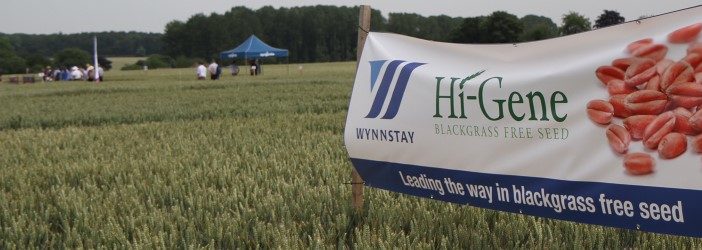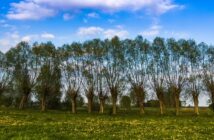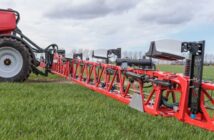Modern arable farming means blackgrass is posing an increasing threat to growers in the west of the country where historically it was less of a problem. Therefore, it has never been more significant to review, or even introduce, a blackgrass control strategy for the season ahead.
“Blackgrass presents a huge management problem for arable growers,” says Wynnstay seed sales manager, Richard Torr.
“A high weed population can have huge cost implications as just 100 blackgrass heads/m2 can create losses of one tonne per hectare, so it’s vital to manage the threat but better still, to keep it off the farm in the first place,” he adds.
Mr Torr says that it is well known that blackgrass can enter farms through a combination of routes, making it difficult to prevent.
“Blackgrass is being introduced onto ‘clean farms’ in the west via straw, imported manures, machinery or even through purchased seed. Once on-farm it’s a tenacious weed that is difficult to eradicate, so you need to use all the tools in the box.
“Cultural control measures including a carefully planned ploughing regime to bury the weed seeds and delayed autumn drilling on known blackgrass-risk fields can help reduce the spread. In the east, for example, many growers have had to move to spring cropping as a result of major blackgrass problems.”
Mr Torr suggests the first line of defence that growers can adopt is to ensure that they are purchasing seed from known, responsible sources, that are certified blackgrass free, rather than risk buying in the problem.
“Wynnstay has invested heavily in commercial seed cleaning facilities, and the unique seed production plant based in Shropshire has been instrumental in producing blackgrass free seed. It is possible to clean blackgrass seed out of cereal seed crops but our approach is safer. By growing seed crops on land where blackgrass is not a problem it should not be in there to start with.
“This season, in excess of 2,000 ha of their HiGene seed has been grown in the west of the country, on land where blackgrass is not a problem,” he explains.
“For growers looking to mitigate against the risks of buying in blackgrass, it provides peace of mind, and a safer alternative to buying seed produced in the south or east of England.
“A quality crop starts with quality seed, and it’s a sensible decision to ensure seed is sourced from ‘clean’ blackgrass free land, which is produced to high specifications to ensure a blackgrass free status is maintained, or an existing burden is not enhanced,” Mr Torr concludes.




